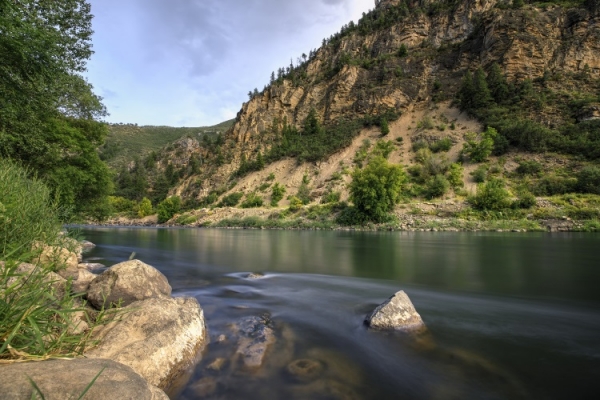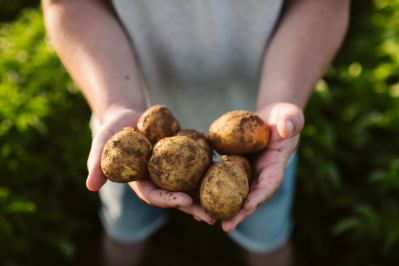‘No time to waste’: PepsiCo ramps up water goal with revolutionary tech that reuses steam from potato chip production
This content item was originally published on www.bakeryandsnacks.com, a William Reed online publication.

The snack giant has fully implemented the tech at its facility in Kolkata, India and plans to roll it out around 30 of its potato chip manufacturing plants in high-water-risk areas over the next seven years.
“We are really excited about the opportunity on several fronts,” Denise Lefebvre, senior VP of PepsiCo’s Global Foods Research and Development told BakeryandSnacks.
“At this plant alone … it will save 60 million litres of water per year and we’re adapting that for many other plants in PepsiCo’s global operation. In addition to that we believe that capture will also be used to regenerate electricity for the plant and facility.”
She told us it took the company’s R&D water processing technology team in partnership with its supply chain engineering team in India two years to develop.
“The plant is in a water stressed area … so we thought that it would be [the perfect] first pilot area, considering the need of that business, the need of that community.”
Global water initiatives
Under its PepsiCo Positive (pep+) umbrella, the Lay’s, Doritos and Cheetos maker has been on an aggressive journey since August 2020 to drive its goal to be Net Water Positive by 2030, replenishing more water than the company uses globally.
“pep+ is our strategic end-to-end transformation that puts sustainability at the centre of how we will create value and growth by operating within planetary boundaries and inspiring positive change for planet and people.”
“PepsiCo has just nine years to reach our ambitious 2030 Net Water Positive goals, so there is no time to waste,” said Jim Andrew, chief sustainability officer at PepsiCo.
“We’re taking a look at our full value chain, from top to bottom, and asking, how can we leverage the innovation and creativity that exists within our company to ensure that the water resources PepsiCo uses are better off a decade from now than they are today?”
The snack giant has created more than a dozen new programmes to advance the company’s water-use efficiency.
Colorado River Basin

PepsiCo has invested nearly $2m in two partnerships in the Colorado River Basin, a critical watershed, but now among the world’s most water-stressed regions.
Firstly, it has partnered with non-profit Trout Unlimited to re-establish connectivity between two segments of the Colorado River that had been blocked by the Windy Gap Reservoir near Denver.
By constructing a mile-long channel to bypass the Windy Gap Reservoir, the initiative is expected to restore perennial flows throughout the river, create 18 acres of new wetlands, restore 50 acres of riverside habitat, and replenish approximately 380 million gallons of water per year.
PepsiCo has also made a founding investment in the Colorado River Basin Fund, a $5 million ‘future of water’ venture capital fund focused on incubating technology solutions to address water scarcity in the region.
The fund will invest in startups addressing water scarcity, quality and equitable access through technologies that help with things like leak detection in smart homes, real time water quantity and quality monitoring in business-dependent watersheds, and next-generation water recycling and alternative sources.
This first-mover investment is meant to catalyse the development of new solutions to help improve the health of the watershed.
Expanded access to 8 million people
In 2021, the PepsiCo Foundation expanded the reach of its safe water access programme to an additional eight million people.
Since the effort began in 2006, the company’s initiative has helped provide water access to 68 million people, with a goal of reaching 100 million by 2030.
To reach this goal, the Foundation is granting $1.5m over three years to two new water stewardship programmes in Latin America and Nigeria.
“For large portions of these regions, access to safely managed water and sanitation services is a major challenge,” said CD Glin, VP of the PepsiCo Foundation and global head of Philanthropy at PepsiCo.
“We are focusing our efforts in areas that are absolutely vital to public health, economic development, and climate resiliency.”
Firstly, it is boosting its decade-long partnership with the Inter-American Development Bank (IDB)'s Aqua Fund with an additional $500,000 to improve water access and sanitation services across the Latin America region. This brings the Foundation’s total investment in the Aqua Fund to over $10m.
In Nigeria, the Foundation is granting $1m to WaterAid to support the construction of water supply and sanitation facilities, as well as programmes to promote good hygiene practices.
Drip irrigation technology
Around the world, countless farmers use flood or trench irrigation to water their crops; however, this method loses up to 70% of the water.
Israeli-headquartered N-Drip has designed a more efficient system that is powered by gravity and harnesses the water-saving benefits of high-pressure drip irrigation, but with low energy, operating and maintenance demands – making it more accessible to all types of farmers and nearly all types of crops.
PepsiCo has piloted N-Drip’s technology in India, Vietnam, and the US, and recorded improved crop yields, reduced fertiliser usage and 50% less water consumed compared to flood irrigation.
The partnership aims to help farmers adopt the technology across 10,000 hectares (25,000 acres) by 2025.
We speak to Denise Lefebvre to find out more about the new cutting edge tech being rolled out in its Kolkata plant.






